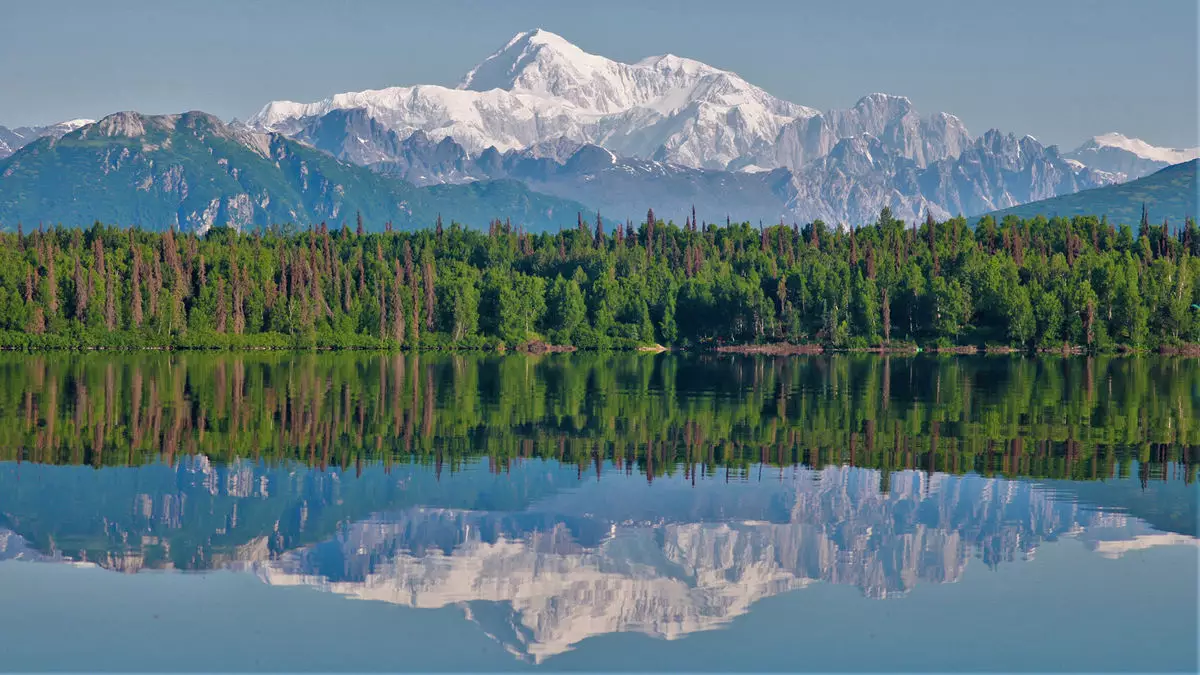The debate surrounding the naming of North America’s highest peak—a site of immense beauty and cultural significance—has recently ignited once more. Despite President Trump’s executive order to revert the mountain’s name back to Mount McKinley, many Alaskans, particularly Indigenous communities, stand firm in their preference for the name Denali. This decision not only aims to honor President McKinley’s contributions but also raises important discussions about identity, respect for Indigenous heritage, and historical integrity.
Mount McKinley, named in 1917 after President William McKinley, is situated in Alaska and is a central figure in both the state’s geography and cultural history. For decades, the mountain bore this name despite its initial Indigenous designation, Denali, which means “the high one” in the Koyukon Athabascan language. In 2015, the name was officially changed back to Denali under the Obama administration, a move celebrated by many as a necessary acknowledgment of Indigenous culture and history. This name change brought a sense of reclamation and reverence for the land among Indigenous peoples, aligning with their historical narratives and traditions.
The recent push by the Trump administration to revert the name to Mount McKinley represents not just a simple alteration of nomenclature but a broader attempt to reclaim a narrative that many believe erases the profound territorial rights and historical significance attributed to Indigenous peoples. By reverting to the McKinley name, the administration seemingly undermines decades of discourse around the importance of recognizing Indigenous identity and culture—especially in a place where the land itself embodies those narratives.
Jordan Sanford, president of Doyon Tourism and a member of the Upper Tanana Athabascan community, offered poignant insights into this ongoing dialogue. Sanford described the importance of the name Denali, stating that it encapsulates the deep respect and spiritual significance Indigenous peoples have for the land. Doyon’s commitment to honoring traditional names exemplifies the broader sentiment throughout Alaska, as expressed by many tourism companies and local businesses. For example, Kantishna Roadhouse made a public commitment, asserting that they would continue to refer to the peak by its traditional name, Denali—a name imbued with ancestral value and historical weight.
Sanford elaborated on the implications of this naming conflict, pointing out that it reflects lingering complexities surrounding identity, cultural significance, and history. Many Alaskans see the reversion to Mount McKinley as a regression from the progress made in honor of Indigenous heritage. The robust community support for Denali, highlighted by social media responses—105,000 likes on a post proclaiming “Denali will always be Denali to Alaskans”—demonstrates the widespread local sentiment against President Donald Trump’s decision.
The conflict over the mountain’s name is not merely about semantics; it has profound implications for Alaskan identity and cultural representation. Alaska’s House of Representatives expressed significant opposition to the name change by passing a resolution urging the Trump administration to keep the name Denali. This marked an important statement from a state legislature that represents a broader constituency aware of and invested in these cultural issues.
The historical context of the naming serves as a reminder that the mountain was given its McKinley designation at a time when such historical honors were more reflective of power dynamics than local significance. The contrast between McKinley’s status—an Ohioan who never visited Alaska—and the local Indigenous cultures that have long revered the mountain indicates a lasting disconnect between the narratives being imposed versus those authentically experienced by the local communities.
Ultimately, the debate over Denali versus Mount McKinley transcends the name itself; it speaks to the heart of identity, respect, and historical acknowledgment. The challenges in this ongoing discourse serve as a reminder of the vital narratives that Indigenous communities possess and strive to uphold. The name Denali represents a commitment to honor these cultures, histories, and the natural world itself, while also fostering a broader understanding of what it means to protect and celebrate such profound legacies. As Alaska navigates this complex interplay between tradition and modernity, it is essential that the voices of Indigenous peoples are heard and respected in determining how they are represented in both name and spirit.


Leave a Reply